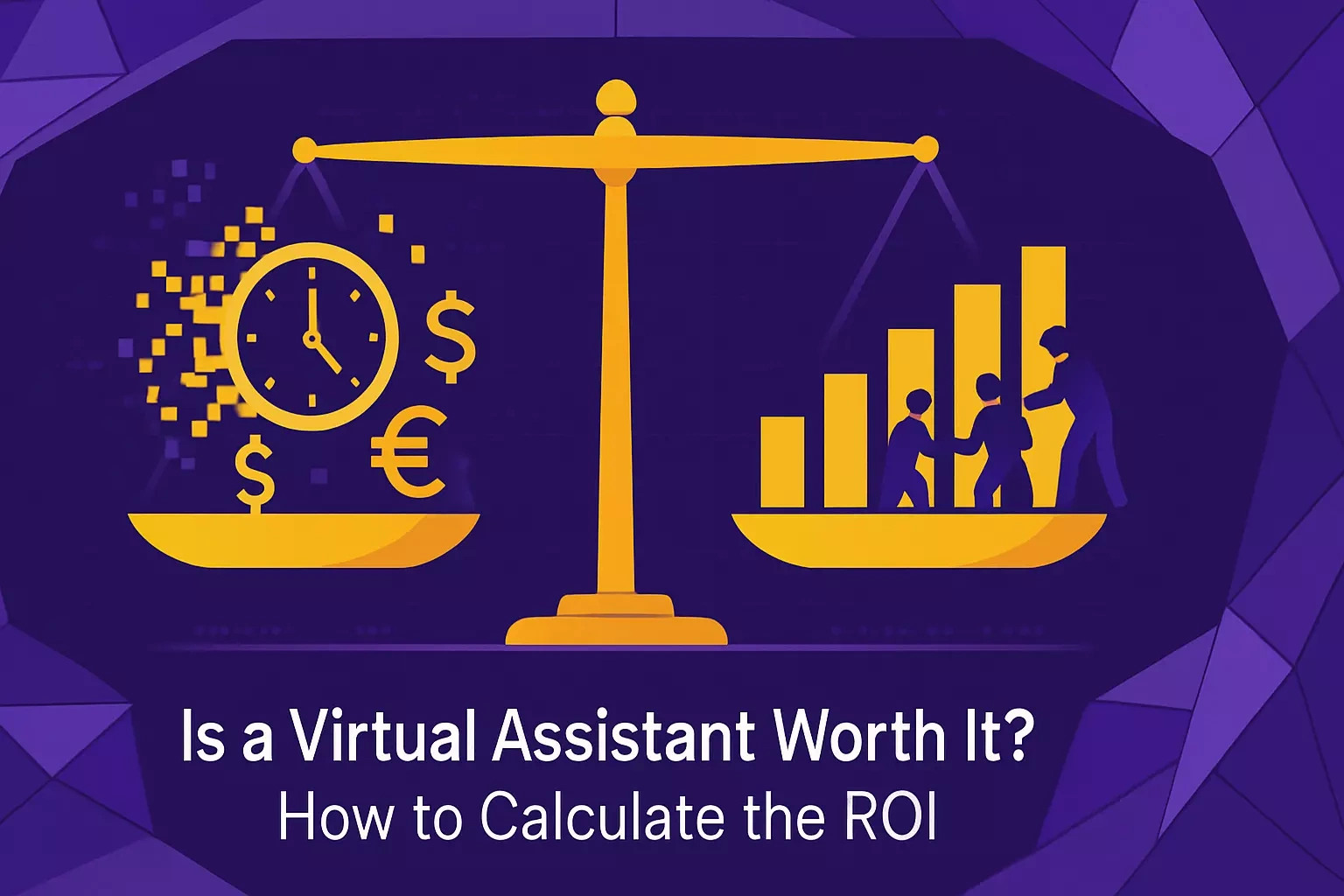Is a Virtual Assistant Worth It? How to Calculate the ROI

Is a Virtual Assistant Worth It? How to Calculate the ROI
The Two Sides of VA ROI: Time and Money
Calculating the Value of Your Time
The Financial ROI Formula
Step-by-Step: How to Calculate Your Potential ROI
Step 1: Identify and Log Delegable Tasks
Step 2: Calculate the 'Time Cost'
Step 3: Estimate the VA's Cost
Step 4: Put It All Together (With an Example)
Beyond the Numbers: The Intangible Returns
Increased Productivity and Focus on Core Functions
Improved Work-Life Balance and Reduced Burnout
Enhanced Scalability and Business Flexibility
When Is a Virtual Assistant NOT Worth It?
If You Don't Have Consistent Tasks to Delegate
If Your Business Lacks Standardized Processes
Making the Decision
References
Is a Virtual Assistant Worth It? How to Calculate the ROI
The Two Sides of VA ROI: Time and Money
Calculating the Value of Your Time
The Financial ROI Formula
Step-by-Step: How to Calculate Your Potential ROI
Step 1: Identify and Log Delegable Tasks
Step 2: Calculate the 'Time Cost'
Step 3: Estimate the VA's Cost
Step 4: Put It All Together (With an Example)
Beyond the Numbers: The Intangible Returns
Increased Productivity and Focus on Core Functions
Improved Work-Life Balance and Reduced Burnout
Enhanced Scalability and Business Flexibility
When Is a Virtual Assistant NOT Worth It?
If You Don't Have Consistent Tasks to Delegate
If Your Business Lacks Standardized Processes
Making the Decision
References
Posted Jun 30, 2025
Thinking about hiring a VA but unsure of the cost? Learn how to calculate the true ROI of a virtual assistant, considering time saved, productivity gains, and cost savings.










